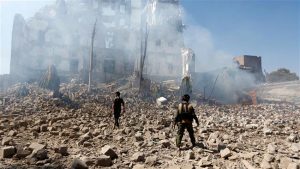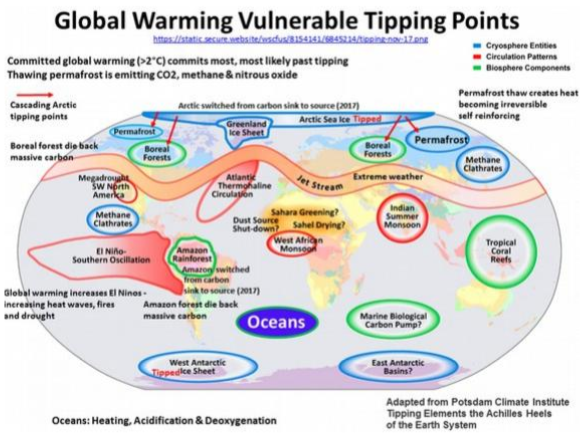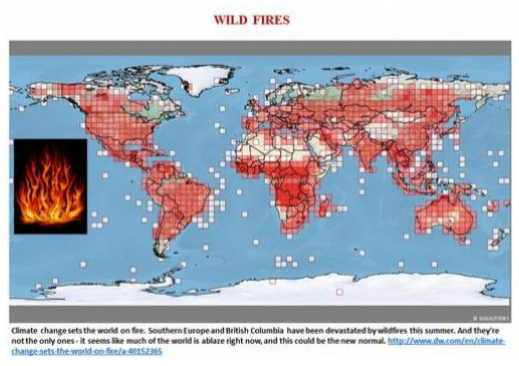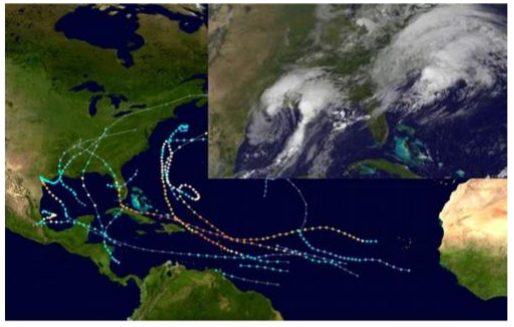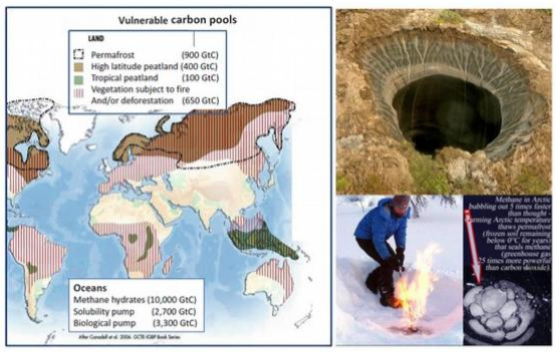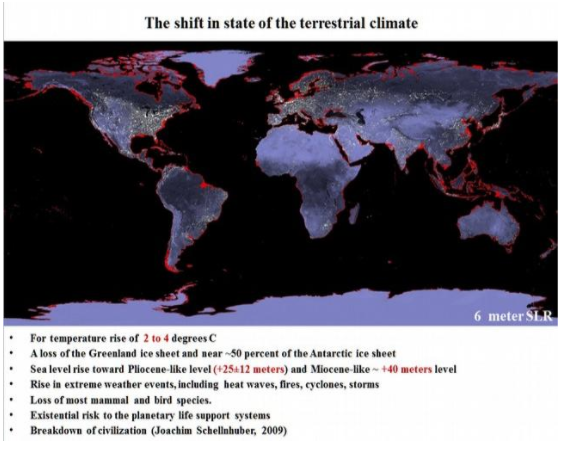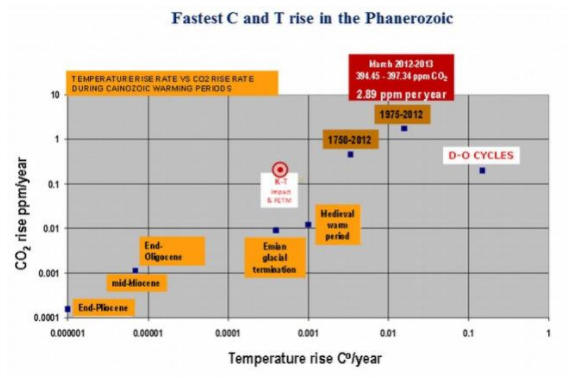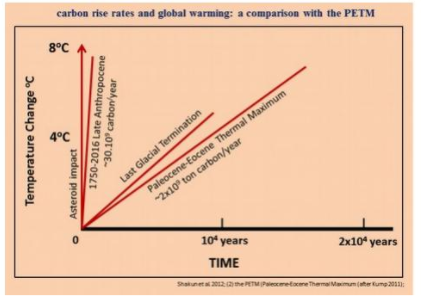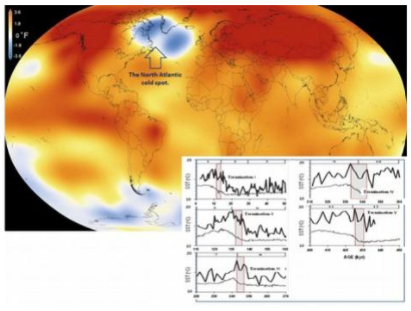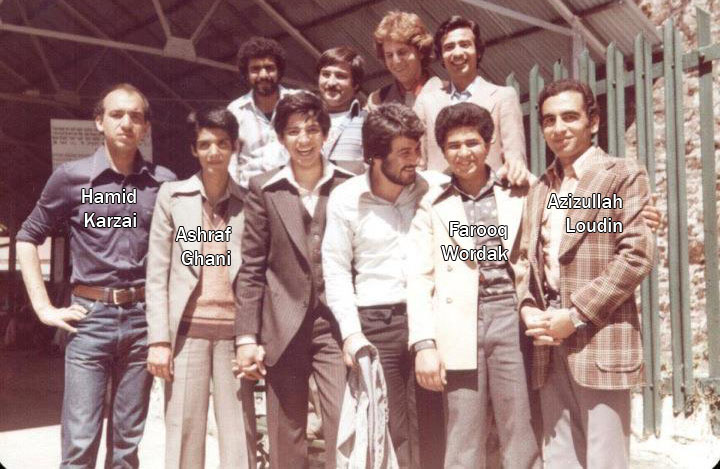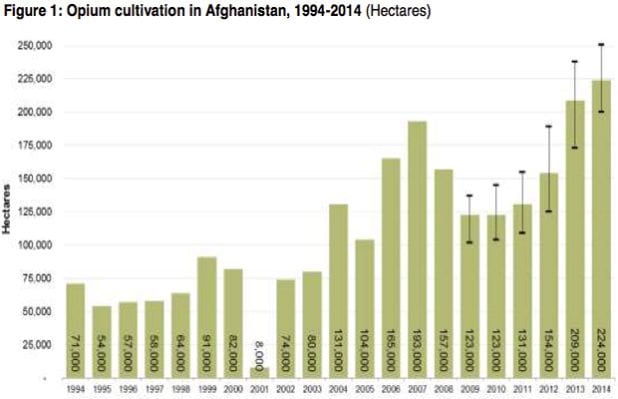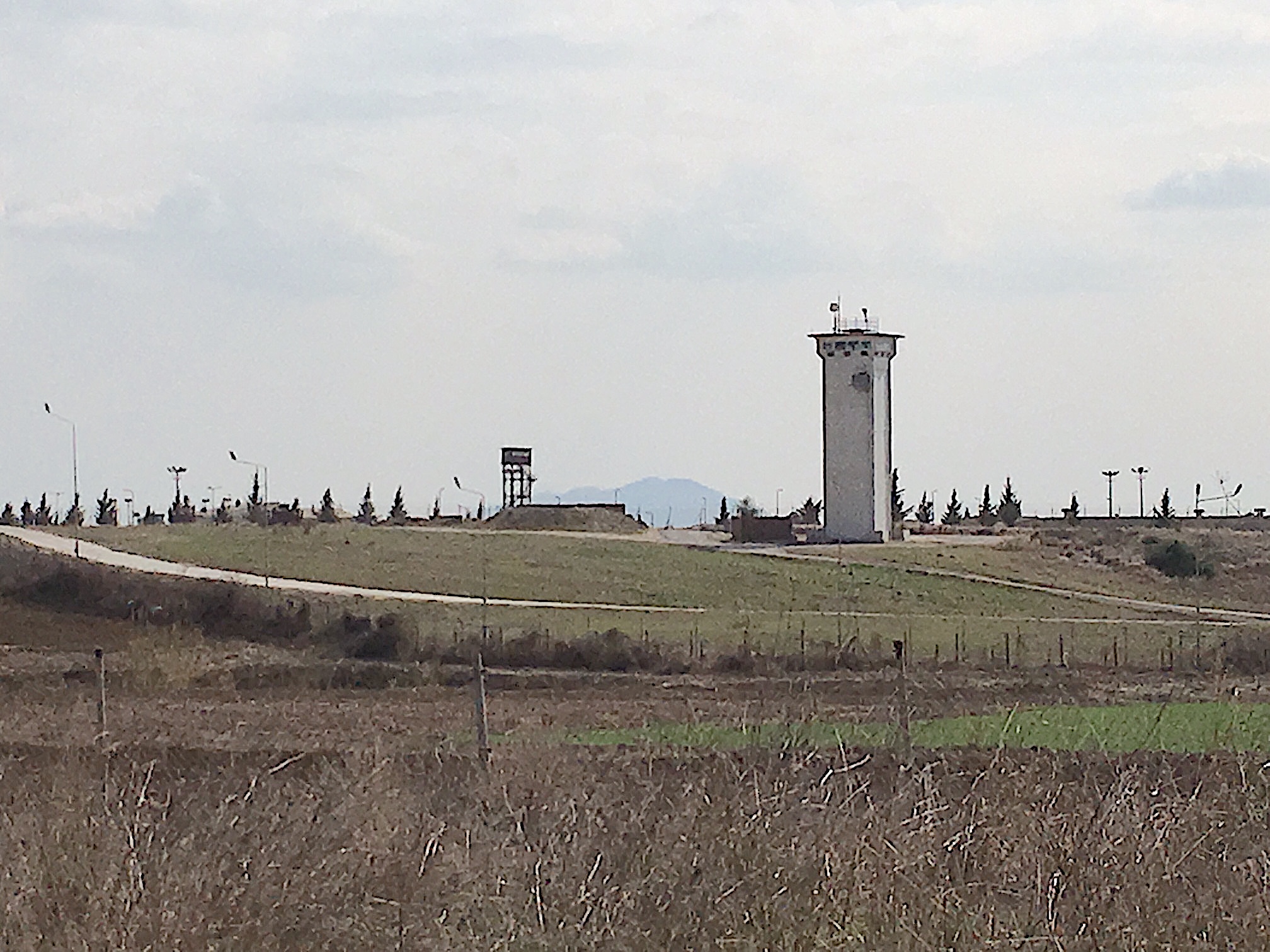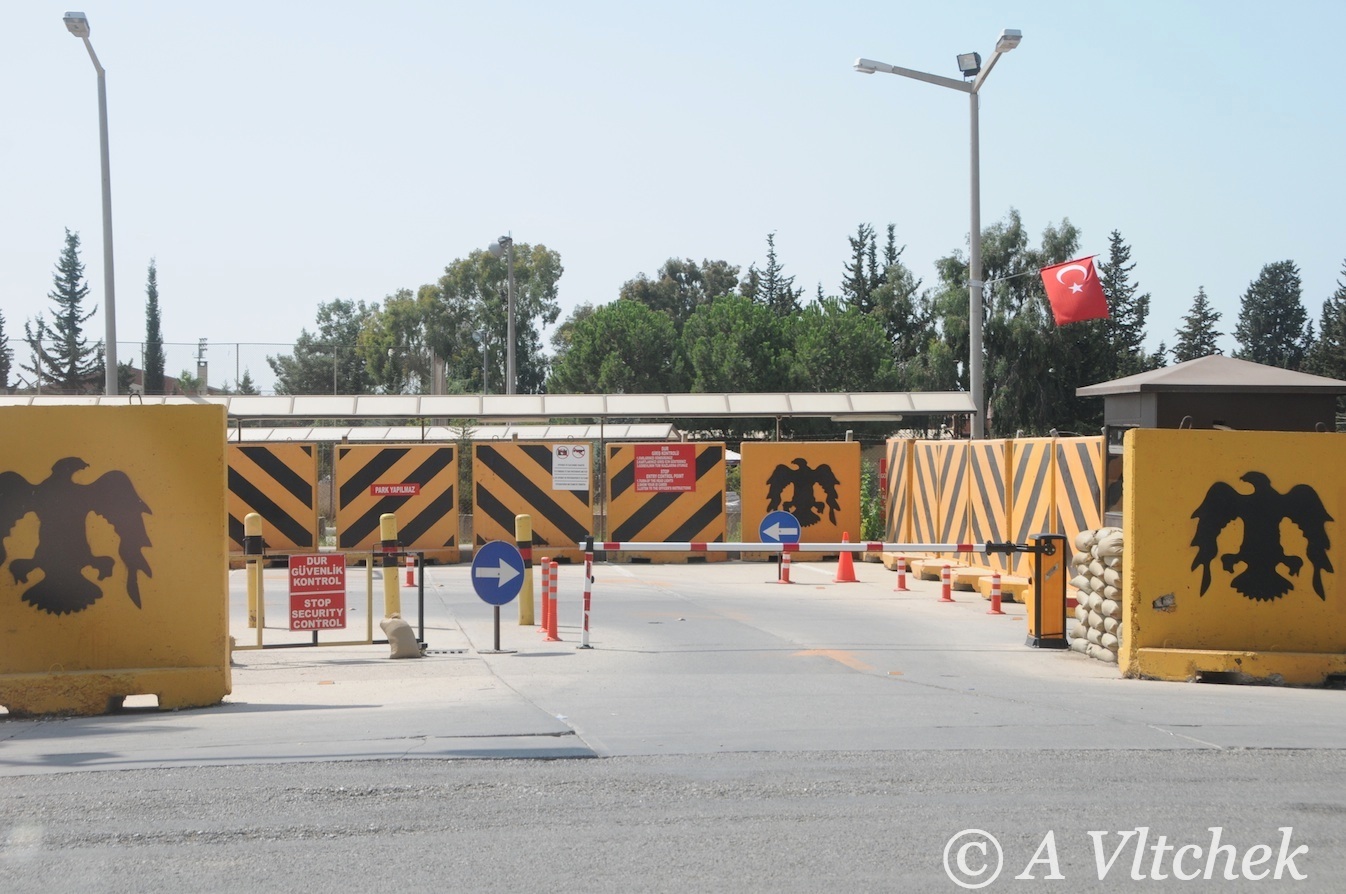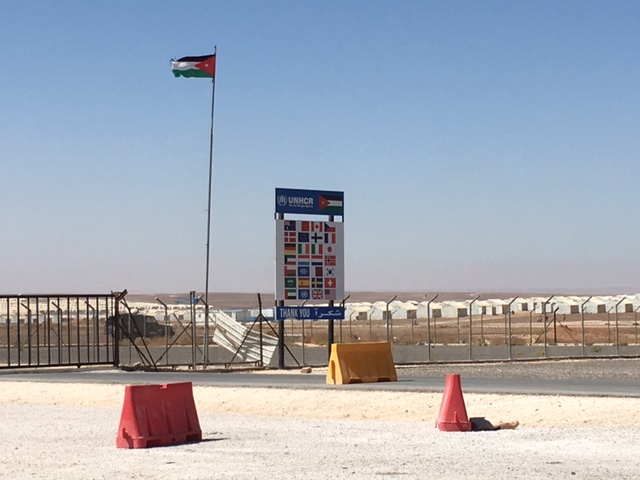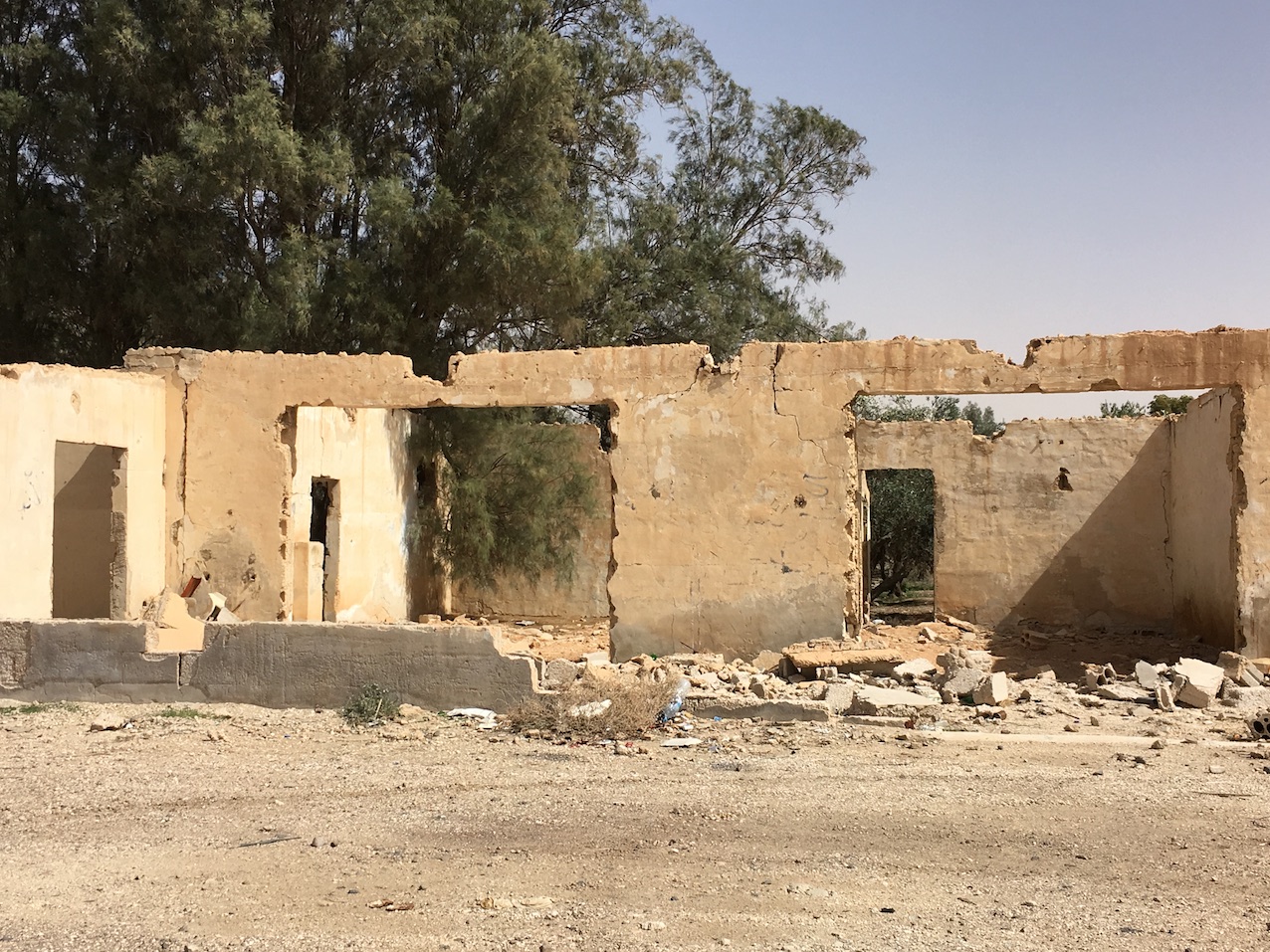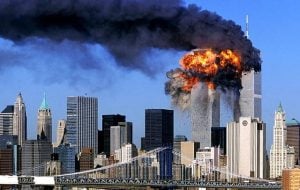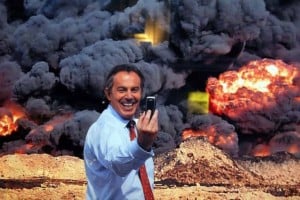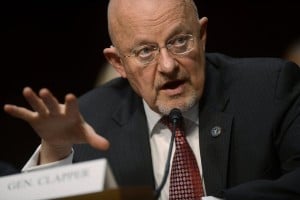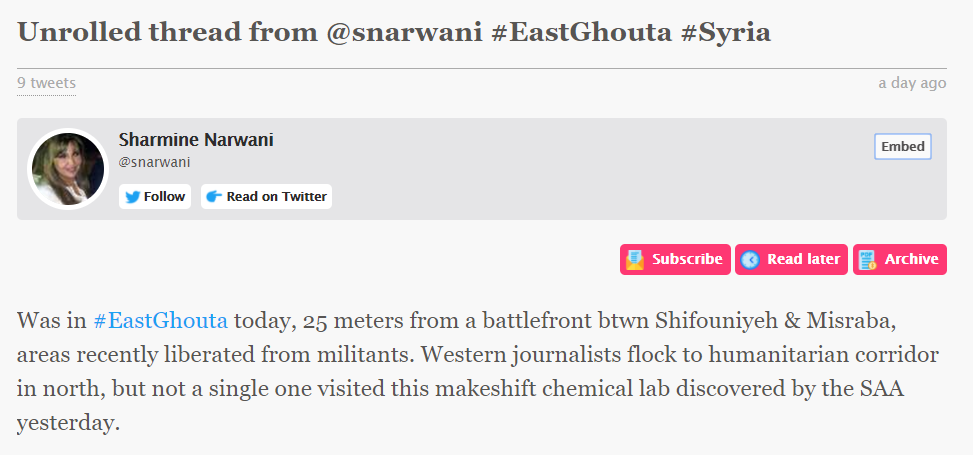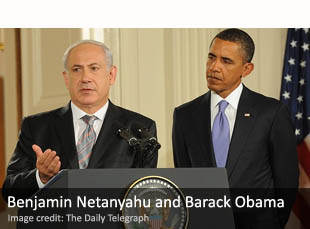Brazilian economist and sociologist Ruy Mauro Marini (1932-1997) was a prime exponent of what became known as dependency theory, an attempt to explain the systemic unequal relations of the Latin American countries in particular with the developed economies of the imperialist “North.” He was a close collaborator of, among others, Vânia Bambirra and the recently-deceased Theotónio Dos Santos. Marini’s best-known work, first published in Spanish in 1972, is Dialectics of Dependency.
Marini was a founder of the Brazilian Marxist organization Política Operária and later, during his Chilean exile, a member of the Movimiento de Izquierda Revolucionaria (MIR). Forced into exile again after the Pinochet coup, he taught at the UNAM in Mexico for many years, returning to Brazil shortly before his death from cancer in 1997.
In the following essay, Argentine Marxist Claudio Katz analyzes Marini’s work in light of contemporary developments in global capitalism. He assesses Marini’s attempt to understand and explain the initial developments in neoliberal globalization and suggests some ways in which dependency theory might now be renewed and updated. And he comments critically on the work of some current proponents of versions of dependency theory.
Among Katz’s most recent works is Bajo el imperio del capital, also published in French translation in Quebec. Katz is a professor in the University of Buenos Aires, a member of the left economists’ group (EDI), and a researcher with the National Scientific and Technical Research Council (CONICET).
Published by Katz on his web page, my translation from the Spanish.
— Richard Fidler
*
Imperialism and Dependency: Similarities and Differences with the Marini era
by Claudio Katz
Summary
The main theorist of dependency anticipated trends of neoliberal globalization. He analyzed productive globalization, the centrality of exploitation and the relative weight of surplus value transfers. But the employment crisis exceeds what was envisaged by Marini, in a scenario disrupted by the mutation of the United States, the collapse of the USSR and the rise of China.
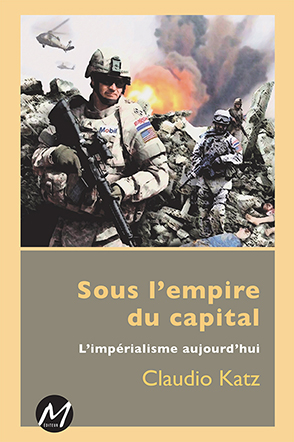
The new national and social disparities emerge in an internationalized economy, without correlation in states and ruling classes. This absence of total transnationalization recreates dependency. The semiperipheries present an economic dimension differentiated from the geopolitical status of subimperialism. The “Global South” does not reincarnate the old periphery, nor does it include China. There are solid pillars to renew dependency theory.
*
In the final works of his intense career, Ruy Mauro Marini – the principal theoretician of dependency – explored the dynamics of globalization. He observed the beginning of a new period based on the internationalized functioning of capitalism (Marini, 1996: 231-252). Some interpreters are of the view that this research crowned his previous work and inaugurated the study of the political economy of globalization (Martins, 2013: 31-54).
This analytical shift confirmed Marini’s enormous capacity to address the most relevant processes of each conjuncture. His findings anticipated several characteristics of the stage that followed his death. Evaluating those observations in light of what happened is a good way to update his theory.
Productive Globalization
In the late 1980s Marini noted that capital was internationalizing in order to increase the surplus value extracted from workers. He analyzed from this standpoint the cheapening of transportation, the irruption of new technologies and the concentration of companies (Marini, 1993). He assessed in particular the new manufacturing-export model of the periphery as it was managed by multinational firms.
These companies secured common spaces between their headquarters and branches in order to expand the manufacturing process. They separated skilled activities from assembly-line operations and profited from national differences in productivity and wages. Marini understood that this operation on a global scale was a structural, not cyclical trend in accumulation.
Its scope is obvious today. Globalization introduces a qualitative change in the functioning of capitalism. It promotes the liberalization of trade and the adaptation of finances to the instantaneity of information. The Brazilian thinker rightly located the epicenter of this shift in globalized manufacturing. He recorded the close connection of internationalization with the flexible production pattern that replaces Fordism.
The transnational companies are visible protagonists of the current economic scenario. They fragment their production into a web of intermediate inputs and final goods destined for export. This framework operates under principles of intense competition, cost reduction and cheaper labour. The consequent offshoring has turned several Asian economies into the new workshop of the planet.
Transnational companies complement their direct investments with subcontracting and labour outsourcing. They make their suppliers responsible for control of the workers and the management of uncertain demand. In this way, they distribute risks and increase profits.
Marini experienced only the beginning of that process and highlighted its contradictions in very generic terms. He was unable to note the commercial imbalances, financial bubbles and overproduction of commodities that exploded with the 2008 crisis.
This shock destabilized the system without reversing productive globalization. It temporarily put into question the financial deregulation, which was preserved without any relevant change. The recent questioning of trade liberalization (Trump, Brexit) illustrates the reaction of those powers that are losing ground. They try to recover spaces by restoring a certain unilateralism, but they do not favour a return to the old protectionist blocs. The political economy of globalization – which Marini foresaw – persists as an appropriate approach to contemporary capitalism.
Exploitation and Industrial Remodeling
The influence that the Brazilian theorist assigned to the increase in rates of surplus value has been confirmed in recent decades. The employers’ offensive dispersed salaries, eliminated the defined wage rules, and segmented work. This reorganization maintains the stability required for the continuity of accumulation in the formal sector and generalizes the insecurity of employment and wages in the informal universe.
The main foundation of globalization is the reduction of labour costs. That is why the masses’ incomes stagnate amidst prosperity and they decline in crises. The transnational firms are enriched by the low wages of the periphery and with the cheapening of the goods consumed by workers in the metropolis. They use offshoring to weaken unions and flatten salaries in all regions.
Firms profit especially from wage differences resulting from the structural unevenness produced by differences in population intensity. These disparities are stabilized by the absence of international mobility of workers. While in the initial period of globalization (1980-1998) foreign investment tripled, the total number of migrants hardly varied (Smith, 2010: 88-89). The work force is marginalized in all the movements that shake up the globalization scenario.
Marini recorded the first relocation of industry to the East. He witnessed the irruption of the so-called “Asian tigers” (Taiwan, Hong Kong, South Korea and Singapore). But he did not see the subsequent mutation that completely modified the manufacturing map.
China is the current epicenter of a growing installation of subsidiaries in Asia. The bulk of globalized production is generated there. Salaries range between 10 and 25% of what is paid in the metropolis for equivalent jobs.
The magnitude of the change is confirmed in the U.S. consumption of manufactured goods. One third of these goods are currently manufactured abroad, which is double the average in effect in 1980 (Smith, 2010: 153-154, 222-227). The foundation of neoliberal globalization in the exploitation of workers is evident. Investments are shifted to countries that offer greater cost reduction, discipline and productivity of the workforce.
Marini also saw how the model of import substitution (which inspired his analysis of dependency) was replaced by a new pattern of manufacturing exports. But he noticed only the generic features of a pattern that has since been reconfigured by global value chains (GVCs) through which the entire manufacturing process is fragmented according to the comparative profitability offered by each activity. This division includes linkages directed by the manufacturer (aeronautical, automotive, IT firms) or ordered by the buyer (the Nike, Reebok or Gap trading emporiums) (Gereffi, 2001). The companies that head up these structures not only control the most profitable resource (brands, designs, technologies). They also dominate 80% of the world trade in these circuits.
This model differs radically from the one prevailing in the 1960s and 1970s. Instead of integrated processes, the subdivision of parts predominates and national manufacturing is replaced by an assembly of imported components. The proximity and size of markets lose relevance in contrast to the comparative labour cost advantages. A new global division of labour (GDL) replaces its international precedent (IDT) (Martínez Peinado, 2012: 1-26).
In the activity of transnational corporations, the specific weight of intermediate goods is multiplied through linkage and mechanisms of vertical industrial specialization (Milberg, 2014: 151-155). These modalities introduce forms of export management that were unknown at the end of the last century.
The Crisis of Capitalism
Marini analyzed the economy of globalization in the belief that capitalism had entered a long cycle of growth. That was the context in which he situated productive specializations and the emergence of the newly industrializing countries (NICs) of Asia. He considered that the processes of regional integration were re-emerging to widen the scale of markets (Marini, 1993). His dependentista colleague shared this reasoning, investigating the impact of new technologies on long waves (Dos Santos, 2011: 127-134).
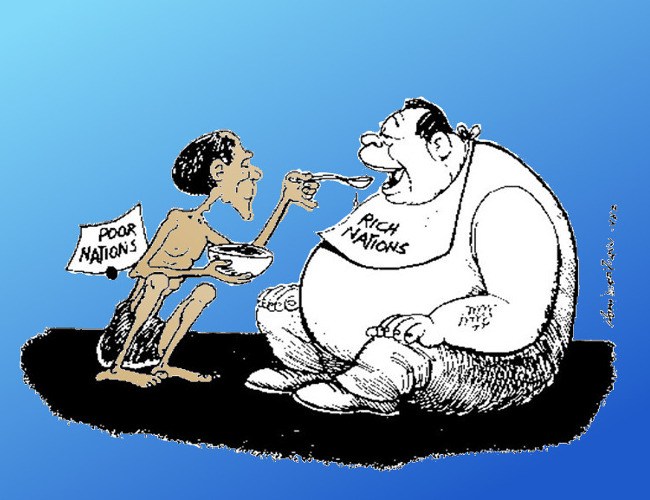
The subsequent course of globalization did not confirm or refute the presence of this long-term upward cycle. The controversies between those who postulate or object to the applicability of these movements did not lead to clear conclusions. That is why we have emphasized the convenience of clarifying the qualitative transformations of the stage without insisting that this period conforms to a long wave (Katz, 2016: 366-368).
Marini inscribed his assessment in Marxist characterizations that highlighted the disruptive nature of accumulation. He emphasized the traumatic potential crises that globalization was generating and highlighted the presence of simultaneous tensions in the sphere of demand (retracted consumption) and valorisation (insufficient profitability). He emphasized both imbalances, with more observations on the first type of contradictions.
In recent decades those tremors have come to light. The explosive retraction of employment has also been verified, reinforced by the relative immobility of the labour force in the face of the vertiginous displacement of goods and capital.
That contradiction distinguishes the current globalization from the old European industrialization. Between 1850 and 1920 more than 70 million emigrants left the Old Continent. This massive transfer depleted the remaining population at one pole and generated new centers of accumulation in the areas receiving workers. An equivalent demographic movement would currently mean the entry of 800 million immigrants to the central countries (Smith, 2010: 105-110).
But the helpless are currently denied that displacement. The developed economies build fortresses against the dispossessed of the periphery and absorb only irrelevant contingents of skilled labour. The safety valve that in the past generated the accumulation process has itself been weakened.
The countries that conclude in an accelerated way their processes of primitive accumulation can not discharge their surplus population over other localities.
This restriction fosters further tensions in capitalism, such as the destruction of jobs due to the expansion of the digital universe. The parameters of profitability – which guide the introduction of new technologies – impose a dramatic elimination of jobs. Unemployment is growing with globalization.
At this stage there is less work for everyone than there was in the preceding phases. Available employment shrinks and its quality is decreasing in the underdeveloped regions. That is why the informal economy (lacking in state regulations) accounts for 50% of labour activity in Latin America, 48% in North Africa and 65% in Asia (Smith, 2010: 115-127).
Accelerated automation – and the expulsion of the agrarian population through technical development in the countryside – drastically reduce employment opportunities. Capitalism, which is based on exploitation – and which Marini studied so closely – can no longer help to reduce this suffering among the entire oppressed population.
Imperial Stakeouts
The Brazilian theorist emphasized the relative weight of imperialism. He pointed out the inescapable function of that system of military domination in the preservation of capitalism. But he produced his texts at a time very distant from Lenin’s scenario. He understood that the Cold War was qualitatively different from the old power clashes, and he drew attention to the unprecedented military supremacy of the United States. He noted the capacity of that empire to forge subaltern alliances, subordinating its rivals without destroying them.
Marini avoided parallels with classical imperialism. He understood the novelty of a period marked by the decline of protectionism, the post-war recovery of industrial protagonism and the reorientation of foreign investment towards developed economies. He synthesized these transformations with a notion (hegemonic cooperation) that he used to define the prevailing relationships among the central powers (Marini, 1991: 31-32).
The current context presents several continuities with this characterization. The framework forged around the Triad (United States, Europe and Japan) continues to ensure military custody of the neoliberal order. That military alliance has already caused the devastation of numerous regions of Africa and the Middle East. The Pentagon continues to play a primary role in the direction of the main military actions. But North American hegemony has lost the forcefulness it exhibited in the 1980s and ‘90s at the onset of globalization.
The United States played a key economic role in the takeoff of this process. It provided the state link required to generate accumulation on a world scale. Washington-based institutions internationalized financial instruments and underpinned productive globalization. They have played that role with greater intensity in the outcome of the crises of recent decades.
Banking regulation by the Federal Reserve, the operation of the dollar as a world currency, the reorganization of state budgets under the supervision of the IMF and Wall Street’s stock exchange rulings strengthened globalization. That specific role was again noticeable in the outcome of the 2008 convulsion.
But the loss of U.S. supremacy is currently corroborated by the country’s trade deficit and external indebtedness. The United States maintains the management of the major banks and transnational companies. It also leads in the introduction of new digital technologies. But it has given up key positions in production and trade. Its neoliberal globalization impetus has ended up favoring China, which is now an unexpected global competitor.
The arrival of Trump illustrates that setback. The tycoon tries to recover U.S. positions by rearranging the free trade agreements. But he faces enormous difficulties in rebuilding that economic leadership.
At the military level, the United States continues to prevail and lacks replacements for the custody of the capitalist order. But in the operations undertaken it fails to sustain its hegemony. That inoperability is very evident in the failure of all of its recent wars (Afghanistan, Iraq, Syria).
For these reasons, the relations of the primary power with its partners have changed. The total subordination that Marini witnessed has mutated into more complex entanglements. The European (Germany) and Asian (Japan) powers no longer accept Washington’s orders with the same submissiveness. They develop their own strategies and are assertive in their conflicts with the North American giant (Smith A, 2014).
No partner questions the supremacy of the Pentagon, nor does any intend to create a conflicting military power. But the vassalage of the second half of the 20th century has been diluted. This shift is congruent with the North American inability to preserve the patronage that it deployed in the postwar period over the other capitalist economies (Carroll, 2012).
It will be necessary to see if in the future the Yankee leadership disappears, resurfaces or dissolves gradually. This uncertainty is a fact that was absent when the Dialectics of Dependency was published in 1973.
Collapse of the USSR, Rise of China
The implosion of the Soviet Union and the conversion of China into a central power distinguish the current period from the Marini era. With the collapse of the USSR, the neoliberal offensive was strengthened. The ruling classes regained confidence and – in the absence of international counterweights – they resumed the typical outrages of unbridled capitalism.
The Brazilian theoretician was a Marxist critic of the Kremlin bureaucracy, committed to socialist renewal and not the collapse of the Soviet Union. Russia’s regression to a capitalist regime – in a context of immobility, depoliticization and popular apathy – transformed the scenario envisaged by the Latin American fighter.
The second turn has been equally shocking. Marini could hardly imagine that the takeoff of Taiwan and South Korea anticipated the change undertaken in China. The per capita GDP of that country grew 22 times greater between 1980 and 2011 and its volume of trade doubles every four years.
China has not only maintained very high growth rates in the context of international crises. The help that gave the dollar (and the euro) prevented the conversion of the recession of 2009 into a global depression. The scale of the historical change under way is comparable to the steam revolution in England, the industrialization of the United States and the initial development of the Soviet Union. No other BRICS country is comparable in prosperity with China’s conversion into a central power.
It is enough to observe its dominant role as investor, exporter, importer or creditor of the major countries of Africa or Latin America to measure the abysmal gap separating the Asian giant from its old peers in the Third World.
The new power does not share simple cooperative relations with its counterparts of the South. It exerts a clear supremacy that extends to its neighbors in the East. No other economy has so radically transformed its positioning in the global order.
China acts as an empire in formation that faces the strategic hostility of the Pentagon. It is forging its own capitalist model through a novel linkage with globalization. It does not pass through the old stages of initial takeoff based on the domestic market. It deploys an accumulation process directly connected to globalization.
To elucidate the specificity of its capitalism, we must resort to characterizations that were absent in Marini’s time. The classic formulas of dependency theory do not encompass these questions.
Polarities and Neutralizations
The dependency thinker highlighted the pre-eminence of polarization on a global scale. He considered that this discrepancy was inherent to capitalism, consistent with the international fractures observed by the classical Marxists of the early 20th century (Luxemburg, 1968: 58-190). The world-system theorists have also interpreted those disparities as intrinsic features of the current social regime.
Numerous empirical studies have corroborated this divide in the emergence of capitalism. The industrial revolution produced the greatest chasm in history between rising and declining poles. That “great divergence” accompanied the takeoff of the West. The developed countries converged in their average expansion, radically differentiated from that of the underdeveloped economies (Pritchett, 1997).
The initially limited differentiation became a monumental breach. Between 1750 and 1913 the leap in per capita GDP [total output divided by population] was as spectacular in England (from 10 to 115) and the United States (from 4 to 126) as the regression suffered by China (from 8 to 3) and India (from 7 to 2). Differences between nations expanded at a much faster rate than they did within countries (Rodrik, 2013).
Marini started from evidence of that kind to theorize the distances between advanced and underdeveloped economies, with reasoning inspired by unequal exchange. But he also perceived the changes in that tendency introduced by postwar late capitalism. In this model, the processes of accumulation in the industrialized periphery counterbalanced the previous polarizations (Mandel, 1978: chapter 2).
The scholar of dependency also noticed how the presence of the so-called socialist bloc compensated for the spontaneous international inequalities of accumulation. The existence of the USSR and its allies determined this neutralizing effect.
The result of these multiple trends was some stabilization of inequality between countries. The purely ascending gap of the 19th century took a more variable course and tended toward equilibrium between 1950 and 1990 (Bourguignon; Morrisson, 2002).
In that period, the polarities within countries declined due to reforms granted by the capitalist class with its widespread fear of socialist contagion. That panic determined the presence of Keynesian models, in a context of decolonization and the rise of anti-imperialism.
Marini recorded both the national and social disparities generated by capitalism, as well as the forces that limit these polarities. This combination of processes was significantly altered in the final decades of the 20th century by the subsequent dynamics of neoliberal globalization.
Diverse Inequalities
Numerous studies coincide in highlighting the current widening of social fractures in all parts of the planet. A well-known analysis of this polarization in 30 countries shows that the 1% of the richest minority controls 25-35% of the total wealth in Europe and the United States (2010). In both regions, 10% of the inhabitants account for 60-70% of the wealth. Similar levels of inequality are found in other central, emerging or peripheral areas (Piketty, 2013).
But the course followed by inequality between countries is more controversial. This indicator is evaluated by comparing the different per capita GDPs with population weightings (Milanovic, 2014). In this way, the incidence of growth rates on global inequality is measured, taking into account the population involved. A substantial increase in GDP in India has very different effects than the same increase in New Zealand (Goda, 2013).
In recent decades the growing social gap has been accompanied by new polarities between countries. But if the population factor is included, the final result is varied. The growth of nations with great demographic weight narrowed the total national disparities. The course of inequalities within and outside borders – usually synthesized by the Theil coefficient – has been reduced by 24% since 1990. The 14% increase in inequality within those nations was offset by a 35% decrease in the disparity between countries (Bourguignon; Châteauneuf-Malclès, 2016).
Due to its large number of inhabitants, China altered the world indicator. While the global economy stagnated at around 2.7% per year (2000-2014), the Asian giant grew at 9.7%. Although this trajectory has similarities with the antecedents of Japan and South Korea, its effect on the polarity between countries is very different.
Amidst the explosion of social inequalities, the continuity of this shrinking of the global fracture is very doubtful. China rises at the expense of its Western rivals and reconfigures the framework of the dominant powers. But the remaining spectrum of the world hierarchy continues to be segmented into traditional compartments. There are few modifications in the world pyramid. A reversal of the “great divergence” developed during the nineteenth century should break that hierarchy.
In studies prior to the recent rise of China, world-system theorists expounded many examples of the enduring character of that structure. They illustrated the reduced international mobility of countries in the long term, exemplifying that permanence in 88 of 93 cases considered (Arrighi, 1990).
Another evaluation made at the beginning of globalization (1960-1998) observed the paradox of a growing participation of the new economies in productive globalization, with little effect on the relative level of per capita GDP.
This work showed that manufacturing production in these countries (as a percentage of the GDP of the First World) rose significantly (from 74.6 to 118%), compared to a per capita GDP (as a percentage of its equivalent in advanced countries), where it remained almost unchanged (from 4.5 to 4.6%). Industrial convergence did not translate into equivalent improvements in the standard of living (Arrighi; Silver; Brewer, 2003: 3-31). China’s subsequent take-off has also been consummated, preserving great distances with the per capita GDP of its Western counterparts.
The course of global inequality is a determining factor in the center-periphery relations that Marini investigated with such attention. But operating on the different open trajectories are forces that are very different from those prevailing in the glory years of dependentism.
Internationalization Without a Political Counterpart
The current widening of social inequalities as opposed to national inequalities unfolds in a very singular scenario: the internationalization of the economy has no equivalent correlative in the dominant classes and states. This contradiction was barely suggested in the 1960s. The coexistence of productive globalization with national-state structures is a conflict of the 21st century.
The gravitation of the global economic (IMF, WB, WTO) and geopolitical (UN, G 20) bodies does not reduce the disruptive scale of that divorce. The configuration of states forged at the outset of capitalism continues to play a central role. They ensure the localized management of the labour force, in a context of great global displacement of products and capital.
This strengthening of labour regulations at the national level has repercussions, in turn, on the specific identities of the different ruling classes. While they globalize their businesses, these groups maintain opposing political and cultural behaviors. The companies are internationalized, but their management is not delinked from the states of origin. For the same reasons, international competition to attract capital develops through consistently rewarding the nearest investors.
The neoliberal order expands a globalization administered through national structures. The same states analyzed by the classical and post-war Marxists now operate in a new framework of productive globalization.
In this scenario of global economic association, geopolitical confrontations unfold recreating relationships of dependency. The main powers renew that subjection in their areas of influence, while they dispute supremacy in the most coveted areas of the planet.
The United States tries to recapture its hegemony beginning with the regions that were traditionally under its control (Latin America). The operation of a common currency – between economies with huge differences in productivity – reinforces the supremacy of Germany in Europe. China widens the gaps with its Asian neighbors. The dependency studied by Marini adopts new forms and intensities.
Problems of Transnationalism
The current stage of productive globalization – without direct correspondence in the ruling classes and states – contradicts the thesis of a full transnationalization. This view assumes that the main subjects and institutions of the system have been divorced from their national pillars (Robinson, 2014). It holds that the old anchoring of companies in the national map has been dissolved.
This approach converts the long transitions of history into instantaneous transformations. It rightly observes that the internationalization of the economy generates dynamics of the same type in other spheres, but ignores the enormous temporal gaps that separate both processes. That a firm assumes transnational profiles in a few years does not imply the equivalent globalization of its owners. Nor does it presuppose processes of that type in the social groups or states that harbour the company.
Capitalism does not develop with automatic adjustments. It articulates the development of productive forces with the action of dominant classes molded to different state scenarios. The different spheres of this tripod maintain levels of connection that are as intense as they are autonomous.
Even in the Marini years some Marxist theorists (such as Poulantzas) perceived that productive internationalization did not entail identical sequences in the state or class superstructure. This point inspired the later characterization of globalization as a process rooted in the institutions of the most powerful state on the planet (Panitch, Gindin, 2014).
The transnationalist approach ignores this mediation of Washington in the gestation of the new stage. That is why it also ignores the current role of Beijing. The association between both powers coexists with an intense rivalry between very different state structures. The links between Chinese and American companies do not imply any kind of transnational dissolution.
It suffices to recall the complex trajectory of gestation of capitalism around pre-existing classes and states, to note how varied the patterns of change of these entities have been. The transnationalist thesis is in tune with historiographical currents that postulate the abrupt constitution of an integrated world capitalist system, forgetting the complex transition from multiple national trajectories (Wallerstein, 1984). In the same way that it conceives that untimely appearance 500 years ago, it supposes that the current globalization illuminates world classes and states with great rapidity.
The opposite tradition – which explores the differentiated paths followed by each national capitalism – records, instead, how subjects and local structures condition current globalization (Wood, 2002). It questions the existence of a synchronized irruption of global capitalism and demonstrates the pre-eminence of uncertain transitions guided by state intermediations. A generically common course of internationalization unfolds with a very high diversity of rhythms and conflicts.
Relationships of dependency persist precisely owing to the absence of a sudden process of complete globalization. The framework of center and periphery is remodeled without disappearing, in a context of globalized manufacturing and redistributions of value between competing classes and states. This diagnosis – consistent with Marini’s tradition – is counterposed to the transnationalist vision.
Semi-Peripheral Reordering
The Brazilian theorist studied international value transfers in order to analyze the dependent reproduction of Latin America. In his view the region recreated its subordinate status through the systematic drainage of resources towards the central countries. Commercial disadvantages, remittance of profits and interest payments on the debt perpetuated this submission.
But the Brazilian thinker did not limit himself to portraying the bipolar fracture (between center and periphery) generated by these hemorrhages. He investigated the new complexity introduced by the existence of intermediate formations. He investigated especially how industrialization placed certain countries in a semiperipheral segment. He observed this transformation in Brazil, which maintained its remoteness from the imperial centers without sharing in the extreme backwardness of the periphery (Marini 2013: 18). .
This characterization was shared by his colleague specializing in dependency, who differentiated the Latin American economies by their internal development and by the type of exported products (Bambirra, 1986: 23-30). The same approach confronted the main exponent of endogenist Marxism, by evaluating how unequal underdevelopment separated the most backward agrarian countries from the economies embarked on a certain industrial takeoff (Cueva, 2007).
These distinctions are very useful in analyzing the current context. The simple center-periphery polarity is less sufficient than in the past in understanding globalization. Value chains have enhanced the relative weight of the semiperipheral countries.
Multinational firms no longer prioritize the occupation of national markets to take advantage of subsidies and customs barriers. They hierarchize another type of external investments. In certain cases they ensure the capture of natural resources determined by the geology and climate of each place. In other situations, they take advantage of the existence of large contingents of a cheap and disciplined work force.
These two variants – appropriation of natural wealth and exploitation of employees – define the strategies of transnational corporations and the location of each economy in the global order.
Both the peripheries and the semiperipheries continue to be integrated into the conglomerate of the dependent countries. The subordinate role that Marini assigned to the two categories has not changed. They are inserted in the value chain, without participating in the most lucrative areas of that network. Nor do they exercise control of that structure. They act within globalized production under the mandate of the transnational companies.
This relegated positioning is corroborated even in those economies that managed to forge their own multinational companies (India, Brazil, South Korea). They entered a field that was monopolized by the center, without modifying their secondary status in globalized production (Milelli, 2013: 363-380).
Another indicator of this relegated positioning is the reduced participation of these countries in the direction of globalized institutions. This absence is consistent with the scarce representation of these regions in the management bodies of the transnationalized firms (Carroll; Carson, 2003: 67-102).
But two significant changes are to be observed compared to the time of Marini. The role of each semiperiphery in the value chain introduces a substantial element that is very definitive of its location in the global pyramid. In contrast to the past, it is not enough to record the level of per capita GDP or the magnitude of the domestic market.
On the other hand, the advance of the Asian economies (South Korea) and the retreat of their Latin American counterparts (Argentina, Brazil) is very evident within the semiperipheral segment. As the same rearrangement is observed in other regions, some authors suggest the introduction of new classifications to conceptualize the change (strong-weak, high-low, upper-lower semiperipheries) (Morales Ruvalcaba; Efren, 2013: 147-181). Marini could not foresee these transformations.
Incidence of Sub-Imperialism
The Brazilian thinker analyzed the role of intermediate economies in the same years that the World Systems theoreticians studied the dual role of the semiperipheral countries. They felt that these countries mitigate global tensions and define the mutations of the global hierarchy. They highlighted how they moderate the fractures between center and periphery and how the protagonists are the ascending and descending mobilities that reshape the international division of labour.
The World Systems thinkers attributed this role to the intermediate nature of the semiperipheral states, which do not hold the power of the center and do not suffer from the extreme weaknesses of the relegated states. They described cases of ascent (Sweden, Prussia, United States), stagnation (Italy, Flanders), and retreat (Spain, Portugal) of that segment in the last five centuries. They postulated that their equidistant place allows them to lead great transformations, while balancing the world pyramid (Wallerstein, 1984: 247-33, 1999: 239-264, 2004: ch. 5).
Marini partially converged with this thesis in his evaluation of the intermediate countries. He used that lens to differentiate Brazil from France and Bolivia. But he also introduced the new concept of sub-imperialism, to characterize a band of regional powers with policies both associated with and autonomous from U.S. imperialism.
With that notion he emphasized the disruptive role of these actors. Instead of observing them as buffers of global tensions, he analyzed their convulsive function. The high level of conflict in these regions was later attributed to the explosive coexistence of universes of welfare and neglect (“Bel-India” type) (Chase-Dunn, 1999).
Marini’s approach was similar to the one used by an exceptional Marxist of the 20th century to explain the vulnerability of intermediate countries as the result of unequal and combined development (Trotsky, 1975). As those nations were incorporated into the accumulation race with great delay, they face imbalances superior to the center that are unknown by their immediate followers of the periphery. For this reason they concentrate potential locations of a socialist beginning. Like other thinkers of his time, Marini placed the dynamics of these formations on a horizon of confrontation between capitalism and socialism (Worsley, 1980).
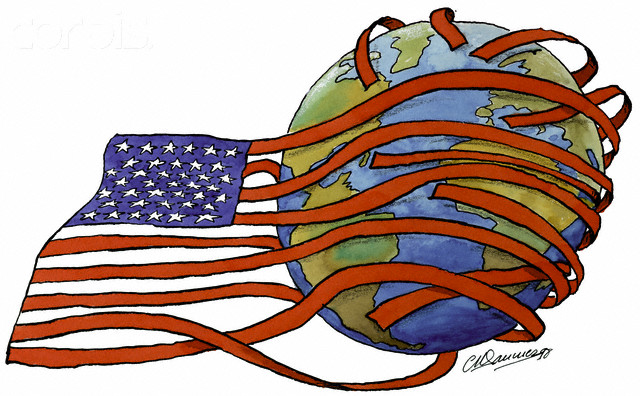
But what he meant by sub-imperialism requires significant revision in the era of neoliberal globalization. The dependency theorist assigned to this category an economic dimension of external expansion and a geopolitical-military dimension of regional prominence. That simultaneity is not confirmed at present.
Contemporary sub-imperialism does not present the economic connotation observed by Marini. It is typical of the countries that fulfill a dual role of associated and autonomous gendarmes of the United States. Turkey and India play that role in the Middle East and South Asia. But Brazil does not play an equivalent role in Latin America and South Africa does not fulfill that role in its continent (Katz, 2017b).
The geopolitical aspect of sub-imperialism and the economic nature of the semi-periphery are more visible today than in the past. The first aspect is determined by military actions tending to increase the influence of the zonal powers. The second feature derives from the place occupied by each country in the value chain. Marini did not perceive this difference.
“Global South”?
The new combination of increasing internationalization of capital and continued nation-state configuration of classes and states forces us to revise other aspects of traditional dependency theory. Productive globalization is usually investigated by the exponents of that tradition, but the imperial geopolitical reconfiguration is often ignored. That omission is seen in the widespread use of the term “Global South.”
This concept is postulated to highlight the persistence of the classic disparities between developed (“North”) and underdeveloped (“South”) countries. The displacement of production to the East and the capture of the new value generated by the West are presented as evidence of that overwhelming polarity (Smith, 2010: 241).
These characterizations rightly confront the successful future attributed by neoliberals (and often validated by the heterodox) to convergences between advanced and backward economies. They also show that the current model is based on the exploitation and transfer of surplus value to a handful of transnational corporations. They explain in detail the advantages that the most powerful countries maintain to capture the bulk of the benefits.
But these valuable insights do not clarify the problems of the period. The simple diagnosis of a counterpoint between South and North clashes with the difficulty of pigeon-holing China. In which of the two fields is that nation located?
Sometimes that country is excepted from the divide, with the same argument used twenty years ago to highlight the uniqueness of South Korea or Taiwan. But what was plausible for two small countries can not be extended to the second largest economy on the planet, which is home to a fifth of the world’s population. If the transformation carried out by the Asian giant is ignored, it is impossible to characterize the capitalism of today.
Excellent research works wrongly place China in the bloc of underdeveloped countries. They consider that the surplus value extracted from its enormous proletariat is transferred to the West (Smith, 2010: 146-149). But it is unwise to include in this universe a power that comes to the aid of Western banks, upholds the dollar in crisis, accumulates a huge trade surplus with the United States and leads in foreign investments in Africa and Latin America.
Nor is it logical to infer that the mass of surplus value generated in China is fully transferred to the West and appropriated by the parent companies of globalized firms. A drainage of that type would have made impossible the high accumulation rates that characterize the country.
It is evident that a huge portion of the profit generated in China is captured by the local capitalist-bureaucrats. This monumental profit is mistakenly interpreted as a simple “slice” of what is appropriated by Western firms (Foster, 2015).
But China is defiant and not a puppet of the United States. Its dominant groups are far from a dependent bourgeoisie with little participation in the globalization cake. The new Asian rulers have no relationship to the old postwar national bourgeoisies.
The emerging eastern power has demonstrated capacity to limit the drainage of surplus value, while increasing its appropriation of the value generated in the periphery. None of these actions is consistent with its classification in the “Global South.”
Renewing Dependency Theory
In his analyses of the political economy of globalization Marini laid the foundations to understand the current period. He highlighted three focuses of study: the exploitation of labour, value transfers and imperial restructuring. He left important clues, but not answers. The updating of his theory requires more complex inquiries than the simple corroboration of concepts enunciated half a century ago.
The pillar of this re-evaluation is the characterization of productive globalization in the new imperial geopolitics. This study requires that we note how the transfer of surplus value redesigns the map of the drainage, retention and capture of value flows. It is also essential to analyze the new relationships of subjugation, subordination and autonomy that emerge in the international mosaic. Marini has left us a monumental research project that is pending.
*
Richard Fidler is an Ottawa activist who blogs at Life on the Left – with a special emphasis on the Quebec national question, indigenous peoples, Latin American solidarity, and the socialist movement and its history.
Claudio Katz is a professor of economics at the University of Buenos Aires, Argentina. He blogs at katz.lahaine.org
Sources
Arrighi, Giovanni (1990). The develpmentalist illusion: a reconceptualization of semiperiphery, W.G. Martin Semiperipheral states in the world economy, Greenwood Press, Westport.
Arrighi, Giovanni; Silver, Beverly J; Brewer, Benjamin D. (2003). Industrial Convergence, Globalization, and the Persistence of the North-South Divide, Studies in Comparative International Development, Spring, Vol. 38, n. 1.
Bambirra Vania (1986). El capitalismo dependiente latinoamericano, Siglo XXI, México
Bourguignon, François; Châteauneuf-Malclès, Anne (2016). L’évolution des inégalités mondiales de 1870 à 2010, 20/06.
Bourguignon, François; Morrisson, Christian, (2002). Inequality among World Citizens: 1820–1992. American Economic Review. 92(4): 727–44.
Carroll, William K (2012). Global corporate power and a new transnational capitalist class? Presentation to the Centre for Civil Society, Durban, January 17.
Carroll, William K; Carson, Colin (2003). Forging a New Hegemony? The Role of Transnational Policy Groups in the Network and Discourses of Global Corporate Governance. Journal of World-Systems Research, IX, 1, Winter.
Chase-Dunn, Christopher (1999). Globalization: A World systems perspective, Journal of World-Systems Research, Vol V, 2.
Cueva, Agustín (2007). Problemas y perspectivas de la teoría de la dependencia. Entre la ira y la esperanza CLACSO-Prometeo, Buenos Aires.
Dos Santos, Theotonio, (2011). Marxismo y ciencias sociales. Una revisión crítica, Luxemburg, Buenos Aires.
Foster, John Bellamy (2015). “The New Imperialism of Globalized Monopoly-Finance Capital,” Monthly Review, vol 67, Issue 3, july-August.
Gereffi, Gary (2001) Las cadenas productivas como marco analítico. Problemas del Desarrollo , vol 32, n 125.
Goda, Thomas (2013). Changes in income inequality from a global perspective: an overview, April, Post Keynesian Economics Study Group Working Paper 1303.
Katz, Claudio Neoliberalismo, Neodesarrollismo, Socialismo (2016), Batalla de Ideas Ediciones, Buenos Aires.
Katz, Claudio (2017b). Las modalidades actuales del subimperialismo Tensões Mundiais / World Tensions v. 12 n. 23, Jul./Dez, Fortaleza.
Luxemburg, Rosa (1968). La acumulación del capital. Editoral sin especificación, Buenos Aires. [English version.]
Mandel, Ernest (1978). El capitalismo tardío, ERA, México.
Marini, Ruy Mauro (1973). Dialéctica de la dependencia, ERA, México.
Marini, Ruy Mauro (1991). Memoria.
Marini, Ruy Mauro (1993). La crisis teórica, en América Latina: integración y democracia, Editorial Nueva Sociedad, Caracas.
Marini, Ruy Mauro (1996) . Procesos y tendencias de la globalización capitalista, Prometeo, Buenos Aires.
Marini, Ruy Mauro (2013). En torno a la dialéctica de la dependencia, “Post-Sriptum,” Revista Argumentos vol.26 no.72 may-ago. 2013, México.
Martínez Peinado, Javier (2012). La estructura teórica Centro/Periferia y el análisis del Sistema Económico Global: ¿obsoleta o necesaria?” enero.
Martins, Carlos Eduardo (2013). El pensamiento de Ruy Mauro Marini y su actualidad para las ciencias sociales, Revista Argumentos, vol.26, n 72, México.
Milanovic, Branko (2014). Las cifras de la desigualdad mundial en las rentas Historia y presente.Globalización y desarrollo, nº 880, Septiembre-Octubre.
Milberg, William; Jiang Xiao; Gereffi, Gary (2014). Industrial policy in the era of vertically specialized industrialization.
Milelli, Christian (2013). L’émergence des firmes multinationales en provenance du « Sud ». La mondialisation, stade supreme du capitalisme, Hommage a Charles Albert Michalet , Pu.Paris-10.
Morales Ruvalcaba, Daniel Efrén (2013). En las entrañas de los BRCIS Revista Brasileira de Estratégia e Relações Internacionais v.2, n.4, Jul-Dez.
Panitch, Leo; Gindin, Sam (2014), “American empire or empire of global capitalism?” Studies in Political Economy 93, Spring.
Piketty, Thomas (2013). Le capital au XXIe siècle, Seuil.
Pritchett, Lant (1997). Divergence, Big Time Journal of Economic Perspectives, 11(3): 3–17.
Robinson William I (2014). “The fetishism of empire: a critical review of Panitch and Gindins’s The Making of Global Capitalism,” Studies in Political Economy 93, Spring.
Rodrik, Dani (2013). The Past, Present, and Future of Economic Growth, Working Paper 1, June, Global Citizen Foundation.
Smith, Ashley (2014). “Global empire or imperialism?,” International Socialist Review, Issue 92, Spring.
Smith, John (2010). Imperialism & the Globalisation of Production. University of Sheffield, Sheffield.
Trotsky, León (1975). Tres concepciones de la revolución rusa. Resultados y perspectivas , El Yunque, Buenos Aires.
Wallerstein, Immanuel (1984), El moderno sistema mundial, Volumen II, El mercantilismo y la consolidación de la economía-mundo europea, 1600-1750, Siglo XXI, México.
Wallerstein, Immanuel (1999). El moderno sistema mundial, Volumen III, La segunda era de gran expansión de la economía mundo, 1730-1850, Siglo XXI, Madrid.
Wallerstein, Immanuel (2004). Capitalismo histórico y movimientos anti-sistémicos: un análisis de sistemas – mundo, Akal, Madrid.
Wood, Ellen Meiksins (2002). The origin of capitalism, Verso, London.
Worsley, Peter (1980), “One world or three? A Critique of the World-System Theory of Immanuel Wallerstein,” The Socialist Register, 1980.
Notes
1. Although only 40-plus pages in length, to my knowledge this seminal essay has never been translated into English.
2. Sous l’empire du capital (M Éditeur, 2014).













